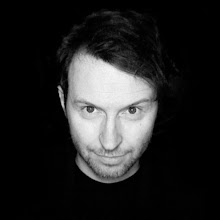I love maps. I always have. I'm not sure of the reason for this. There were no ancient maps hanging on the walls of my parents' house when I grew up. There were, however, books. Probably two multi-volume books paved the way for my current adoration of cartography: the vast, two-shelf-filling American encyclopaedias and The Lord of the Rings.
Why my parents - not particularly known for their adoration of American culture, particularly (in my Dad's case) when it came to the pronunciation of words, had spent clearly a bundle of money on 10 square feet of educational book that couldn't even spell properly I don't know, but these volumes were the main source of all knowledge for me as I grew up. From the moment I could read, instead of indulging my many questions, I was merely told to "look it up". So I did.
The encyclopaedias were, naturally, full to the fake-leather brim with words and pictures. They were also, naturally, full of maps. Lots of maps. Maps in extraordinary quantities. Glossing over their American obsession with dedicating more book space to US states than to European countries, the books contained double page spreads of surprising detail. The detail was particularly surprising because the books had been printed in the 1960s, and large swathes of the planet were still owned by Britain, causing the occasional problem for researching a geography project in 1981. More fascinating, the entire world appeared to be delicately shaded in pastel colours. A gentle pink here, a soft yellow there. I thought for a while that there was some deep relevance to this - after all, England was coloured a delicate shade of green, and that seemed pretty appropriate. If I'd gone to, er, Northern Rhodesia, I would have fully expected to be greeted by a landscape that was entirely yellow (as opposed to the overwhelming lavender of Southern Rhodesia). It would look pretty amazing from a plane. Beyond the subject country's* borders, surrounding lands would be a dull sepia, as if crossing the border took you back even further in time to a world of handle bar moustaches and cheerful oppression of natives. In some cases it probably did.
Fortunately, lessons at my school seemed to steer clear of the late 20th century post-colonial world, or at least the British post-colonial world. This meant the encyclopaedias never got me into trouble, though it also meant that I was 17 before I realised that Britain used to own Canada. No harm done, you might argue.
Real maps were one thing. Tolkien taught me that made-up maps could be even more fun.
It wasn't just that I enjoyed his, fascinating as they were (I particularly loved the tiny, almost 3-D renditions of mountain ranges, so much more interesting than contour charts on a real map). As soon as I worked out that with careful vibration of the hand one could could draw some very convincing coastlines, I was an unstoppable fictional cartographer. Fjords were the inevitable consequence of my wobbly hand technique - no 100-mile beaches in my worlds - but I enjoyed myself with huge inland seas that defied all the laws of nature, mountains that if to scale would probably have been 100 miles high, forests that looked rather like clouds, capital cities that stood nowhere near water courses... you name a naive creative cartographic oversight, I probably committed it. But it didn't stop me. I created continents, island kingdoms, planets, solar systems.
It was a planetary comfort zone. I couldn't draw people or monsters very well (except, oddly, for their eyes) but I could draw the place they lived. I've got whole worlds kicking about on scrappy bits of paper back home, resolutely unpopulated and with unconvincing pole-equator separation that would probably cause havoc with the ecosystem. I sometimes wonder if I dug them out from under my old bed at home, would life and civilisations have evolved, with tiny ink cities sprouting up in the white spaces where no giant mountains or foggy forests were lodged?
I only wonder this very briefly, because it's silly.
* I mean the country that was the subject of the article, not the one that was subject to the British crown - though they were often the same.
Subscribe to:
Post Comments (Atom)


No comments:
Post a Comment